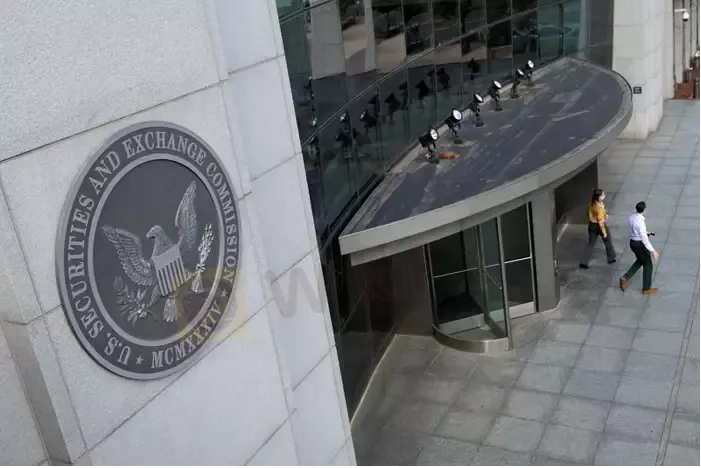简体中文
繁體中文
English
Pусский
日本語
ภาษาไทย
Tiếng Việt
Bahasa Indonesia
Español
हिन्दी
Filippiiniläinen
Français
Deutsch
Português
Türkçe
한국어
العربية
U.S. SEC proposes new rules for clearing houses
Abstract:The U.S. Securities and Exchange Commission (SEC) on Monday proposed rules aimed at mitigating conflicts of interest around registered clearing agencies’ governance arrangements.

The U.S. Securities and Exchange Commission (SEC) on Monday proposed new rules aimed at preventing conflicts of interest in management and governance of clearing houses.
Clearing houses provide essential plumbing for financial markets, ensuring that securities or derivatives trades are completed, even if one side of a transaction goes bust.
Under the SECs proposal, registered clearing houses would be required to disclose more details on board composition, independent directors, and nominating and risk management committees, among other details, the agency said.
I think these rules would help to build more transparent and reliable clearing houses, SEC Chair Gary Gensler said in a statement.
“This in turn would help ensure our markets are more resilient, protecting investors and building trust in our markets,” Gensler said.
The plan would replace two related measures proposed following the 2009-2010 global financial crisis, but which were never adopted.
Specifically, the SECs plan would require clearing houses identify, mitigate or eliminate conflicts of interest involving directors or senior managers, and also to document such actions.
It would also require such firms to implement policies and procedures that obligate directors to report conflicts of interest, among other details.
The SECs move comes as part of efforts by the Biden administration to see all aspects of the financial industry boost environmental, social and governance disclosures.

Disclaimer:
The views in this article only represent the author's personal views, and do not constitute investment advice on this platform. This platform does not guarantee the accuracy, completeness and timeliness of the information in the article, and will not be liable for any loss caused by the use of or reliance on the information in the article.
Read more

Beware of Gold Bar Investment Scams: Rising Threats
Gold bar scams surge in 2025 as gold prices hit $3,000/oz, targeting seniors. Learn how scammers exploit trust in gold and tips to avoid these frauds.

Why Trade Agreements Matter to Nations
In today’s interconnected world, trade agreements serve as the foundation for stable and predictable international commerce.

Trade Fights Are Heating Up—What Happens Next?
Global financial markets have become increasingly reactive to even minor developments in international trade talks.

Juno Markets Upgrades to FYNXT PAMM
Juno Markets has successfully upgraded its managed account infrastructure by integrating FYNXT’s Percent Allocation Management Module (PAMM) system.
WikiFX Broker
Latest News
eXch Exchange to Shut Down on May 1 Following Laundering Allegations
Think Scams Won’t Happen to You? That’s Exactly What Scammers Count On
Beware of Gold Bar Investment Scams: Rising Threats
Over $4 Billion Laundered Through Crypto Scams in Paraguay
Currency Calculator


